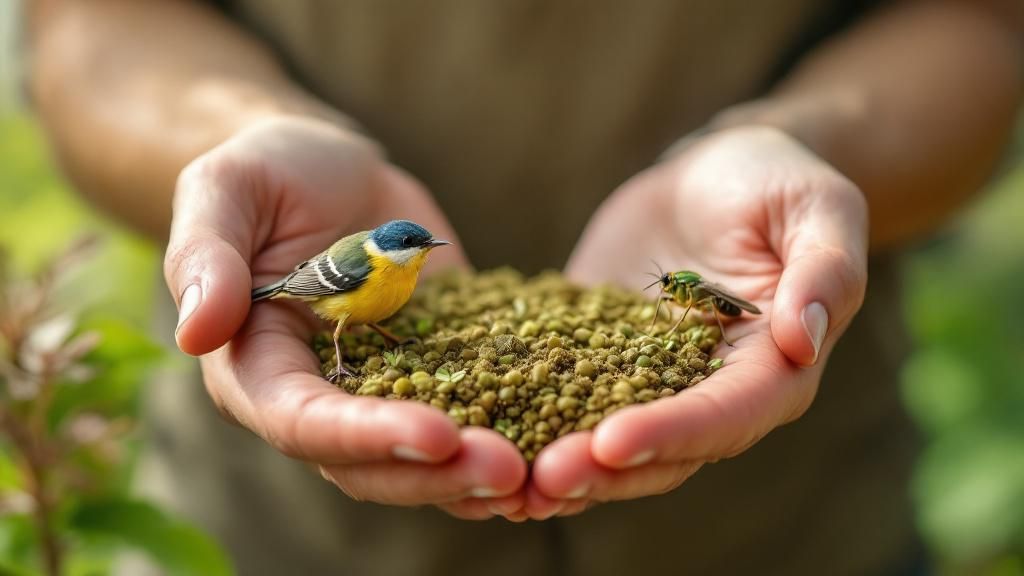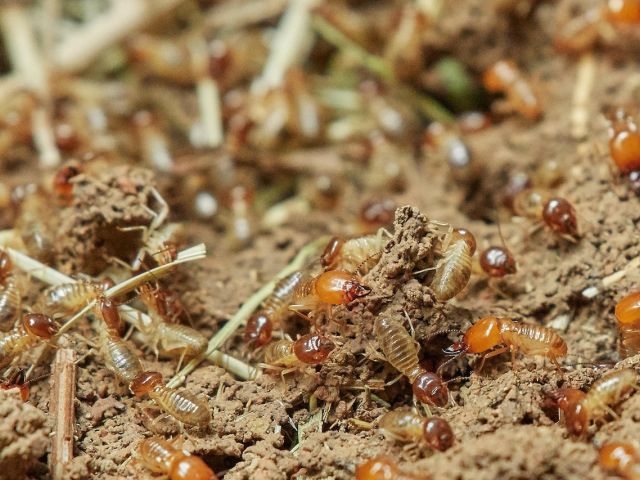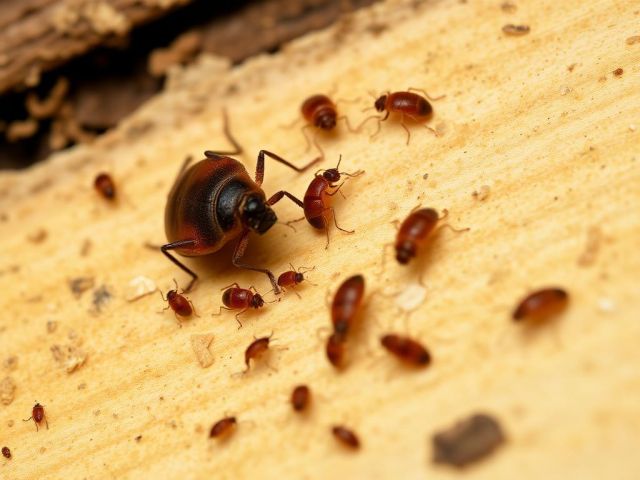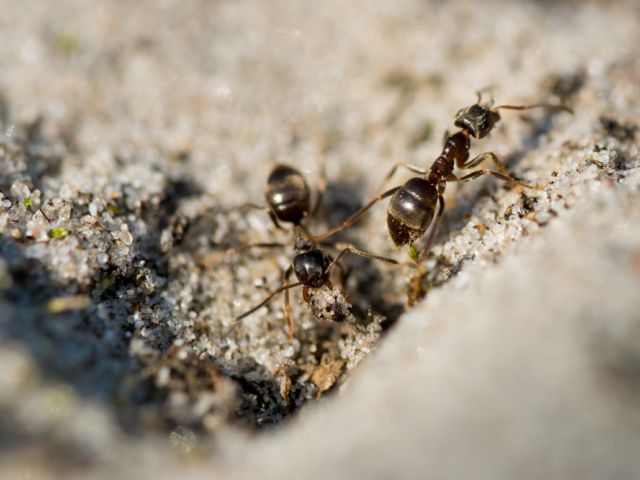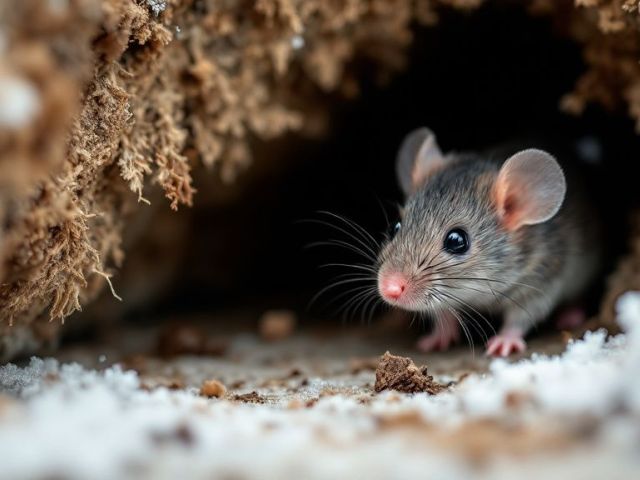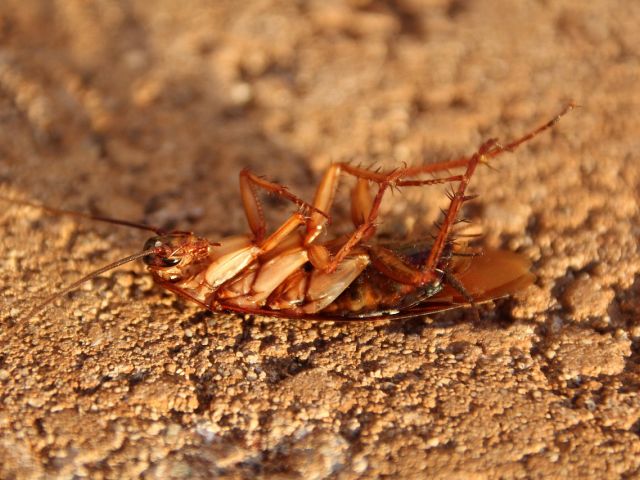How Natural Predators Help Keep Pests in Check
Key Takeaways
-
Ladybugs, lacewings, birds, and toads are powerful allies in natural pest control.
-
Supporting beneficial wildlife reduces dependence on chemical pesticides.
-
Proper habitat and plant selection encourage predator populations in home gardens.
-
Biological pest control is a cornerstone of eco-friendly integrated pest management.
-
DOA Pest Service can offer guidance on eco-conscious pest strategies that start outdoors.
While pest control often begins inside the home, many infestations actually start outdoors. In Tennessee, where lush gardens and green yards are common, your backyard can either become a breeding ground for pests—or your first line of defense. By encouraging natural predators to thrive in your yard, you can dramatically reduce harmful pest populations and minimize the need for chemical intervention. In this article, we explore how to use nature’s pest control agents—like ladybugs, birds, and frogs—to create a healthier, more balanced outdoor environment.
Meet the Garden’s Pest Patrol: Common Natural Predators
Nature has a built-in system for keeping pests under control. Encouraging natural predators to do their job can protect your garden from destructive insects, often before you even notice an infestation.
Top natural pest controllers include:
-
Ladybugs: Feeds on aphids, mealybugs, and scale insects.
-
Lacewings: Their larvae are voracious consumers of soft-bodied pests.
-
Birds: Species like wrens, sparrows, and chickadees consume beetles, caterpillars, and mosquitoes.
-
Frogs and toads: Help keep insect populations in check, especially in damp garden zones.
-
Parasitic wasps: Target specific pest eggs and larvae without harming plants or people.
These predators are particularly valuable during Tennessee’s spring and summer months, when pest activity surges.
The Benefits of Natural Predators vs. Chemical Pesticides
Chemical pesticides may offer fast relief, but they often come with long-term costs: pesticide resistance, collateral damage to beneficial insects, and harmful runoff that impacts local wildlife and waterways.
Natural predator benefits include:
-
Targeted control of pest species
-
No chemical residue left on produce or plants
-
Preservation of pollinators and beneficial soil microbes
-
Reduced long-term cost compared to repeated chemical treatments
Encouraging these “garden guardians” supports your entire ecosystem while helping avoid pest outbreaks that migrate indoors. Homeowners who embrace this method often experience fewer recurring infestations—especially when paired with a professional prevention strategy.
Simple Ways to Attract Natural Predators
If you want nature to lend a hand in pest control, it starts with creating an environment where beneficial creatures want to live. Fortunately, doing so doesn’t require a complete garden overhaul.
Tips to boost predator activity:
-
Add flowering plants like milkweed, fennel, and yarrow to attract pollinators and insects that draw in predators.
-
Install water features to bring frogs, toads, and birds to your yard.
-
Avoid broad-spectrum pesticides, which kill off helpful insects alongside pests.
-
Use mulch and ground cover to shelter ground beetles and spiders.
-
Install birdhouses or insect hotels to give predators a place to nest.
Drip irrigation systems can also help by creating ideal moisture conditions for insects that feed on garden pests. The more stable and diverse your landscape, the more likely it is to attract and support a robust population of natural enemies.
Garden Pests That Natural Predators Can Help Control
You might be surprised how many common pests are naturally managed by local wildlife. With a little patience and habitat support, beneficial predators can address some of the most stubborn problems without the need for synthetic sprays.
Pests controlled by natural predators include:
-
Aphids
-
Cabbage loopers
-
Caterpillars
-
Spider mites
-
Whiteflies
-
Cutworms
-
Fungus gnats
For gardeners battling repeated outbreaks, this method may not eliminate every pest, but it significantly reduces populations and prevents rapid spread.
Challenges and Considerations for Homeowners
While natural pest control methods offer long-term sustainability, they do come with a few challenges. Beneficial predator populations may take time to build up, and their presence can vary depending on weather and food availability.
Things to keep in mind:
-
Avoid overusing pesticides or herbicides, which can set predator populations back.
-
Predator-prey balance takes time and requires consistent gardening habits.
-
Wildlife like birds and frogs may need protection from domestic pets or larger animals.
It’s important to remember that natural predators are most effective when paired with proper garden maintenance and seasonal inspections. In some cases, professional pest control may be necessary to get ahead of an infestation before a natural balance can take over.
Integrating Natural Pest Control Into a Larger Strategy
Integrated Pest Management (IPM) is a modern approach to pest control that combines prevention, monitoring, and biological control with minimal chemical use. Natural predators are a cornerstone of IPM, especially in outdoor environments.
This approach allows for safer pest management that supports long-term goals like soil health, pollinator safety, and fewer pest invasions indoors. For homeowners in Tennessee, this means fewer surprises in attics and crawl spaces caused by pests that first appeared in the garden.
Companies like DOA Pest Service recognize the power of natural systems. While they offer conventional indoor pest control services, their experts also help homeowners identify outdoor risks and develop sustainable strategies that begin at the property’s edge.
Frequently Asked Questions
What are the best natural predators for home gardens?
Ladybugs, lacewings, spiders, frogs, birds, and parasitic wasps are top choices for garden pest control.
Can I rely solely on natural predators to manage pests?
Natural predators can manage many pests, but they’re most effective when combined with seasonal maintenance and professional advice.
Are there plants that help attract beneficial predators?
Yes! Try planting dill, fennel, alyssum, and milkweed to support beneficial insects.
Is this method suitable for vegetable gardens?
Absolutely. Using natural pest control methods keeps produce chemical-free and supports pollinators.
Should I still use pest control services if I use natural methods?
Yes. Professionals can offer integrated approaches that combine natural and preventive strategies to ensure full coverage indoors and out.

